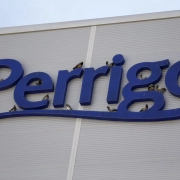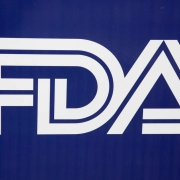In latest PARP probe, FDA asks Clovis to limit Rubraca’s label
In latest PARP probe, FDA asks Clovis to limit Rubraca’s label
Published: Nov 17, 2022
By Tristan Manalac
BioSpace
The FDA has requested that Clovis Oncology limit the indication of its PARP inhibitor Rubraca (rucaparib) as second-line maintenance therapy in recurrent ovarian cancer, the company revealed in an SEC filing this week.
The proposed changes to Rubraca’s label would limit its use to only patients harboring tumor BRCA mutations.
If the FDA and Clovis do not reach an agreement over the revisions, the Agency will convene a meeting of the Oncologic Drugs Advisory Committee to re-scrutinize the drug. Clovis is currently considering the FDA’s request, according to the SEC filing.
Rubraca is approved for use in patients in complete or partial response to platinum-based chemotherapy and is also indicated for fallopian tube and primary peritoneal cancer.
This indication is responsible for a “substantial portion” of Clovis’ Rubraca revenue, the company indicated in a 10-Q filing posted early this month.
“We would expect that a limiting of our second line maintenance indication could result in a significant impact on our revenue,” the company stated.
The FDA made the revision request on Monday when it met with Clovis via teleconference to discuss overall survival data from the company’s Phase III ARIEL3 clinical trial. Findings from ARIEL3 formed the basis for Rubraca’s regulatory green light in 2018. Complete and final data were submitted in September.
If Clovis concedes to the FDA’s request, it would not be the first time that Rubraca has lost an indication. In June, the company voluntarily withdrew its blockbuster drug from the U.S. market as a treatment option for patients with BRCA-mutation ovarian cancer who have received at least two prior lines of chemotherapy, citing concerns about excess mortality risk in this patient population.
At the time, Clovis said this indication “represents a very small portion of the Company’s total sales” in U.S. and Europe.
Still, times have been tough for the Colorado-based biotech. Earlier this month, amid increasing regulatory scrutiny on Rubraca, Clovis signaled it was at risk of bankruptcy. To stay afloat, the company laid off 115 employees.
Putting the Pressure on PARP Inhibitors
Rubraca is only the latest casualty in the FDA’s intensified probe into safety concerns surrounding PARP inhibitors.
In August, AstraZeneca voluntarily withdrew its Lynparza (olaparib) for the treatment of highly pre-treated patients with advanced ovarian cancer bearing BRCA mutations. The decision follows a subgroup analysis of the Phase III trial SOLO3, which found that treated patients were 33% more likely to die than comparators who received standard chemotherapy.
Meanwhile, GlaxoSmithKline also restricted the use of its PARP inhibitor Zejula earlier this month. Following an FDA request, Zejula as a second-line therapy is now only usable in ovarian cancer patients with deleterious or suspected deleterious germline BRCA mutations. The drug retains its first-line indications in epithelial ovarian, fallopian tube or primary peritoneal cancer.
Source: BioSpace






 Reuters
Reuters


